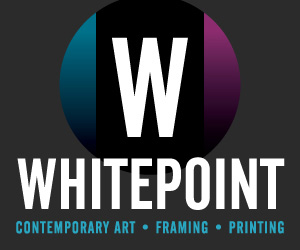City stakeholders gather at summit to stop the violence
Subcommittees have been formed, will present ideas at Dec. 7 meeting
Community stakeholders met at St. Stephen AME Zion Church Saturday morning to discuss the issue of violence in the city at a “Summit to End the Violence.”
The summit, organized by St. Stephen’s Pastor Derinzer Johnson and Retired Asbury Park Police Lt. George Corbin, brought law enforcement officials, politicians, business owners and other city stakeholders together hear from representatives based on five areas of concern: mental health, law enforcement, jobs, housing and education.
Although no major takeaways came out of the summit, a clear method of organization has been set. Five subcommittees, one for each named area of concern, have been formed. Those subcommittees have been charged with meeting in the coming weeks to come up with possible solutions and ideas to decrease the violence and will present those ideas at the next general meeting on Dec. 7 at 10 a.m. St. Stephens will again be the venue.
“The purpose of subcommittees is to put things together together so that when it is all said and done, we can put these ideas out into the community,” Corbin said.
“It’s the beginning of the beginning,” said Johnson.
At the meeting, the five individuals from offices congruent with the areas of concern gave an overview of their organizations and provided insight to how their agencies are significant links in the chain needed to fully lock down the growing violence issue.
They were Mary Pat Angelini, assemblywoman and executive director of Prevention First; Thomas Huth, director of the Monmouth County Prosecutor’s Office Major Crimes Bureau and head of their Asbury Park satellite office; Heather Schulze, community outreach coordinator for Interfaith Neighbors; and Rev. Kevin Williams, an Asbury Park Middle School teacher and pastor of the Martin Luther King Jr. Presbyterian Church in Neptune; and Patrick Durkin, director of real estate development for Interfaith Neighbors.
Huth, director of the Major Crimes Bureau of the Monmouth County Prosecutor’s Office, said 80 percent of the city’s crimes are committed by just 20 individuals and a mobilized a ground effort to knock on the doors of the homes of those individuals to find out what the underlying causes or issues are that lead the individuals to commit the violent acts may be a good start. This way, when issues come to light they can be referred to the proper agency in the city, he said.
Nicolle Harris, a member of the board of education who recently won re-election, said it may be prudent of the prosecutor’s office to partner with another organization that has already been established in the community, as a culture of distrust currently exists between members of the community and law enforcement.
Rev. Kevin Nunn of the Spirit of Truth World Vision Outreach Center and vice president of the Asbury Park-Neptune Ministerial Alliance, said his organization has been going door-to-door with gang members and parents of kids who were killed since the “Stop the Violence” rally in September, and agreed trust factors need to be put in place first.
“This is a totally different city when the lights go out, and there is no room for the feint hearted,” he said. “If you are going to do it you must earn their trust.”
Angelini’s agency, Prevention First, is a nonprofit that seeks to empower children and families who struggle with everyday issues associated with violence and substance abuse.
According to Angelini, Prevention First brought some of the first violence prevention programs into the schools in Asbury Park. At present, they offer programs at the elementary, middle and high school level. The organization has recently merged with Preferred Behavioral Health and has hopes of providing a clear and concise directory of their services for families to access, she said.
“Good, solid community organization is not rocket science,” said Angelini. “We have all the working parts here in Asbury Park, and there is no reason the city can’t be a shining example.”
Williams noted the intersection between violence and education is “interesting.”
Violence affects a children’s psyche, he said. In many instances children who act out in the classroom are not doing so purposefully, but because they are acting out on frustrations with their inability to meet the challenges of the classroom, he said. Many members of the black clergy learned how to read in church, and Williams called upon members of clergy in the audience to return to stressing literacy and having children read aloud while attending services.
“I have not met a child who does not want to succeed in the classroom,” he said.
Adrienne Sanders, president of the president of the Asbury Park and Neptune NAACP, said education systems in areas with high level concentrations of poverty are becoming pipelines to the prison system.
“Kids who don’t have access to a good education become part of the problem,” she said.
Schulze, who works with Interfaith Neighbors, a nonprofit organization in the city, talked about jobs opportunities in the city. Interfaith offers several preparatory and basic skills improvement programs and operates the Kula Cafe, a 16-week hospitality training program geared towards getting impoverished youth to gain the skills necessary to earn a job in one of the 55 restaurants in the city, she said.
Something Schulze’s organization realized from local business owners prior to opening the cafe was that “local kids lacked the customer interaction skills needed to land a job in the restaurant industry,” she said.
The cafe graduated 11 students from the program Wednesday and Interfaith hopes to get them placed in local businesses soon, she said.
Interfaith’s affordable housing program has also helped increase the percentage of the population that owns their homes on the Westside from 11 percent to 23 percent in recent years, said Durkin.
“It is important to increase the home ownership and give people a greater stake in the community,” he said, adding the agency is also not as “delusional” as to think home ownership will solve all of the problems the Westside faces.
During the meeting, questionnaires were handed out to all who were in attendance. The questionnaires asked them to identify three factors that they felt contributed to the problem of violence in the community, and to offer three possible solutions to the problem.
Although similar efforts to end violence have been organized in the past, Councilman John Moor remains optimistic about the effects this effort will have.
“Like Pastor Johnson said—this is the beginning of the beginning,” he said.
St. Stephens AME Zion Church is located at 1001 Springwood Ave.
[Photo at top: Adrienne Sanders and George Corbin address the crowd.]
————————————————————
Follow the Asbury Park Sun on Facebook and Twitter.















